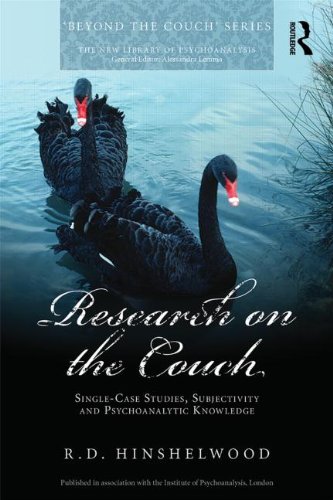

Most ebook files are in PDF format, so you can easily read them using various software such as Foxit Reader or directly on the Google Chrome browser.
Some ebook files are released by publishers in other formats such as .awz, .mobi, .epub, .fb2, etc. You may need to install specific software to read these formats on mobile/PC, such as Calibre.
Please read the tutorial at this link: https://ebookbell.com/faq
We offer FREE conversion to the popular formats you request; however, this may take some time. Therefore, right after payment, please email us, and we will try to provide the service as quickly as possible.
For some exceptional file formats or broken links (if any), please refrain from opening any disputes. Instead, email us first, and we will try to assist within a maximum of 6 hours.
EbookBell Team

4.4
82 reviewsIs psychoanalysis knowledge? Is psychoanalysis a science, or is it hermeneutics? Can clinical material be considered research data?
Psychoanalysis is ambiguous about whether it is about meaning or about truth, and the relations between these two compelling experiences. Psychoanalysts often think of their work as closer to the humanities than to medical and natural science. The wider the gap between science and psychoanalysis appears, the more psychoanalysts feel pulled to something that respects subjectivity, the humanity of their patients themselves, and move away from the procedures of natural science.
Research on the Couch is a relevant and timely contribution to the current debate about both the nature and validity of psychoanalysis and its body of knowledge. Freud always regarded his clinical material as his research data. In this book R.D. Hinshelwood aims to explore that view and defend Freud's claim whilst acknowledging the criticisms of single case studies and the inevitable problems for research into human subjectivity and personal experience. To this end the book reviews Freud’s own methods of disseminating his discoveries, discusses the problem of evaluating different claims to psychoanalytic knowledge, and presents a cogent logical model for testing psychoanalytic theories clinically.
This book evolves a model for the generation and justification of psychoanalytic knowledge, a 'parascience' just as rigorous as natural science, and one that addresses the subjectivity of meaning. Research on the Couch will be of interest to psychoanalysts of all schools, academics, clinicians, students and those keen to further their knowledge of psychoanalytic studies.